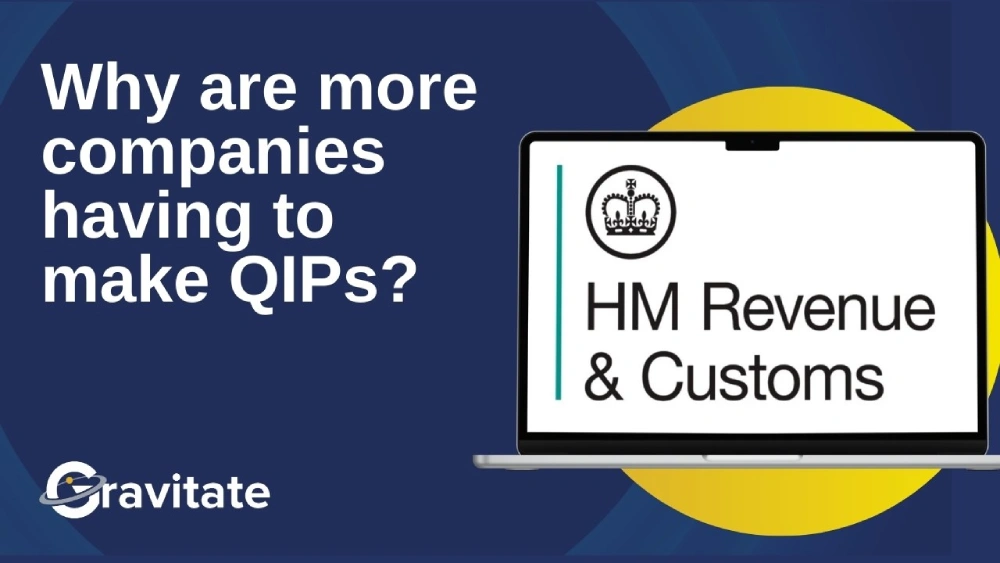Hospitality companies face several unique challenges, including loads of regulation, uncertain schedules and inconsistent income streams susceptible to unexpected disruptions.
At Gravitate, we have a deep understanding of the hospitality industry and its quirks and are determined to help companies within the sector grow, succeed and achieve financial resilience.
In this blog, I’ll be looking specifically at one of the most crucial (and challenging) areas of running a hospitality business – Payroll.
Why is Payroll in the hospitality sector difficult?
There are some unique characteristics of hospitality that can make it more complicated than other sectors. Below are just a few examples:
- Diverse workforce: Hospitality businesses often employ students, part-timers, casual workers and agency staff, alongside full-time salaried workers, all with different contracts.
- Inconsistent schedules: Employee schedules can change regularly. One week they might work 20 hours; the next, they might work 40. This makes applying flat rules relating to pay, holiday and overtime difficult.
- Service charges and tips: Businesses also need to establish service charge and tip rules. HMRC has strict rules about who keeps them, whether they count towards minimum wage calculations, and tax treatment.
- Outdated systems: Old fashioned records and systems, such as spreadsheets, are not designed to handle the pace and high turnover of a busy hospitality business. Automated payroll solutions are highly recommended to save time and stress.
Hospitality has a varied workforce
Hospitality restaurants generally have a fluid, diverse and flexible workforce, including but not limited to:
- Full time salaried chefs or managers
- Part-time waiting staff
- Zero-hours bar staff
- Freelance event staff/entertainers
- Seasonal temporary workers
- Students and under-18 apprentices
Different types of employees are entitled to different rights, including holiday pay, rest breaks, and notice periods.
High staff turnover rates
The hospitality industry has a very high staff turnover rate, recently reported to be as high as 35%. This seemingly constant churn creates additional payroll stress points. Businesses will need to regularly calculate final pay, issue P45s, and handle pension auto-enrolment for short-tenured workers.
Shift work
The traditional 9-5 rarely applies to hospitality businesses; instead, the industry relies upon shift work to cover early mornings, late nights, weekends and bank holidays. Managing these shifts in a compliant way is the responsibility for your payroll team. It requires you to track actual working hours to the minute to avoid wage discrepancies.
To make matters more complicated, employees may swap shifts. If they do this but one works more hours (or a time slot that pays more), that difference must be reflected in pay. Manual systems are prone to errors here, so automation is key.
Overtime
Overtime is common in hospitality, and is often driven by unexpected necessity, such as covering absences and dealing with rush periods. There is no legal requirement to pay a higher rate for overtime, but employees must be paid accurately for each hour they work.
Businesses must record start and end times of all shifts accurately, clearly define overtime rules in contracts, and ensure wage calculations include all hours worked (even if they aren’t pre-approved).
Zero hours contracts
Zero hours contracts are popular in hospitality due to the flexibility they provide to both the business and its employees, but they require careful payroll handling.
Workers still earn holiday pay (typically 12.07% per hour worked). They must also receive at least the minimum wage, rest breaks, and cannot be penalised for refusing shifts. Accurate hours tracking and automation are both essential to stay on top of these fluctuating hours and their legal requirements.
Why Payroll automation is key to hospitality
At Gravitate, we encourage our clients to save time, reduce stress and improve efficiency through automation in every area of their finance function, including payroll.
Automating your payroll means tracking hours worked in real-time, integrating with your rota and point of sale (POS) systems, and automatically calculating holiday, overtime, tax and pension contributions. Automation reduces errors and ensures compliance with HMRC and saves lots of administrative time.
If you would like to learn more about getting your business set up with automated payroll, we’ll be happy to help you get all started.
We can also integrate it with your other accounting systems and provide training for your finance staff and management to ensure things stay accurate and dependable long-term.

.png)


.png)

.png)
.png)

.png)
.png)
.png)













.png)
.png)
.png)

.png)
.png)

.png)








.webp)
.webp)








.jpg)

.webp)
.png)

.svg)
